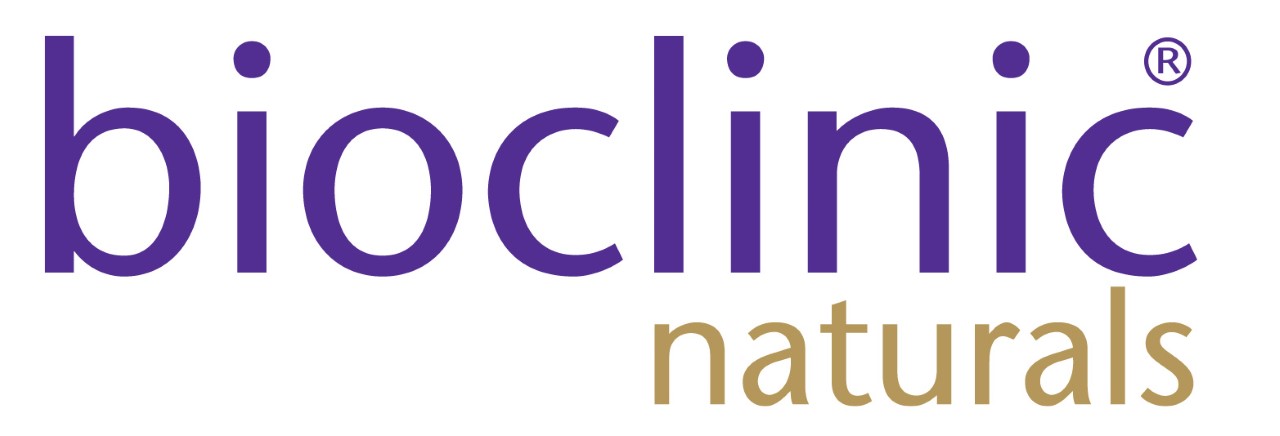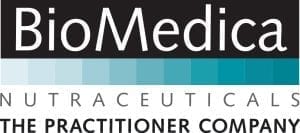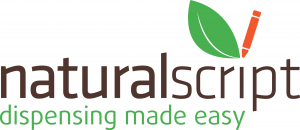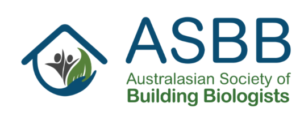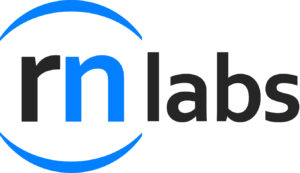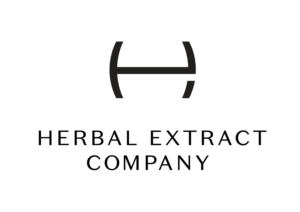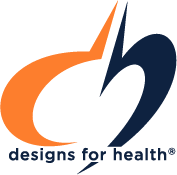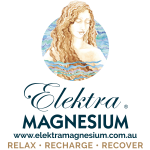Recordings of ATMS Special Event: The Environmental Medicine Symposium 2023
- Events
- Recordings of ATMS Special Event: The Environmental Medicine Symposium 2023
$175 – $345 AUD
About the Event

During this full day session, you will hear from four leading experts in environmental medicine, discussing chemicals, toxins, mould and mould related illnesses, as they present practitioners with evidence-based solutions for enhancing health, supporting detoxification pathways, and minimising exposure.
Program summary (full topic outlines and bios below):
- Testing Environmental Exposures in the Home – Nicole Bijlsma, Building Biologist, Bestselling Author and Founder of Australian College of Environmental Studies
- Advances in Toxins and Detoxification Management – Dr Braham Rabinov, General Practitioner and Fellow of the Australasian College of Nutritional and Environmental Medicine (ACNEM)
- Forms of Mould-Related Illness – Dr Sandeep Gupta, Vocationally Registered General Practitioner
- Hormesis and Building Resilience to Toxic Exposures – Dr Marc Cohen, Medical Doctor, University Professor, Author, Poet, Entrepreneur, Wellness Trailblazer and Perpetual Student
- How Fluids Can Transform Environmental Exposures – Dr Lenise Appleyard, Doctor of Traditional Chinese Medicine (TCM)
This special event is perfect for practitioners who have an interest in environmental medicine, looking to learn from leading voices on the latest research, testing practices, symptoms and treatments for toxins and mould.
Speakers and Sessions
Session: Testing Environmental Exposures in the Home
Environmental chemicals (toxicants), mould and non-ionising radiation electromagnetic fields (NIR-EMFs) have increased exponentially over the past four decades and a growing body of evidence suggests that these exposures contribute to many of the chronic diseases typically seen in clinical practice.
Risk assessment, setting of exposure standards and the regulation of these hazards is inadequate and there are challenges establishing causation as environmental research typically relies on data from human observational studies which are frequently prioritised as ‘low quality’ and not ‘evidenced-based medicine’. These exposures can be identified through the exposure history and significantly reduced through education.
In this session, with Nicole Bijlsma will:
- Highlight key questions to identify patients impacted by environmental exposures.
- Describe adverse health effects associated with mould and EMF exposure.
- Explain what happens in a water damaged (mould) building and why it should be tested by a building biologist.
- Explain why homes should be tested for EMFs.
- Provide simple ways to mitigate a patients’ exposure to these hazards with a focus on rearranging furniture to the use of air filters and dehumidifiers.
Speakers and Sessions
About Nicole Bijlsma
 Nicole Bijlsma is a Building Biologist, Bestselling Author (Healthy Home Healthy Family) and Founder of the Healthy Home (Building Biology) movement in Australia. She established the Australian College of Environmental Studies in 1999 to educate people about the health hazards in the built environment.
Nicole Bijlsma is a Building Biologist, Bestselling Author (Healthy Home Healthy Family) and Founder of the Healthy Home (Building Biology) movement in Australia. She established the Australian College of Environmental Studies in 1999 to educate people about the health hazards in the built environment.
Nicole has lectured at tertiary institutions for 30 years, has been published in peer reviewed journals and is regularly consulted by the media to discuss mould, electromagnetic fields and toxic chemicals, and lectures in Australia and abroad about environmental health issues. Her research explores the impact of environmental exposures on human health and their ramifications for clinical practice.
Session: Advances in Toxins and Detoxification Management
Assessment and mitigation of the toxic load can be complex and time consuming. The purpose of this session is to enable you to better recognise, test and manage toxicants within your patients, as opposed to just identifying and managing their sources.
Many toxins are consumed daily without our knowledge and contribute to many chronic illnesses.
These include:
- Food intake: examples include heavy metals like mercury from fish, herbicides and pesticides from spraying, plasticizers from food wrapping and plastic drink containers.
- Air from both indoors and outdoors: including oils and gases to heat homes, toxic gases from gas cooking, volatile organic compounds, mould, traffic and industrial pollution.
- Household cleaning products: bathroom and toilet cleaners, personal care products like deodorants, and room refresheners.
In this session, Dr Braham Rabinov will discuss conducting a clinical and environmental history check to better identify the presence and sources of toxicants. It will outline the different testing available together with their advantages and limitations, and it will cover the processes to reduce the toxic load particularly in complex situations. These will be illustrated with case studies.
About Dr Braham Rabinov
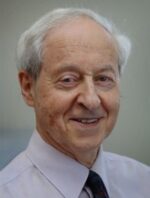 Dr Rabinov is a General Practitioner who has practiced Holistic Medicine for more than 40 years. He has had a particular interest at looking for the underlying causes, triggers, and drivers of illness. He combines this knowledge with an interest in the nutritional and genetic drivers of health.
Dr Rabinov is a General Practitioner who has practiced Holistic Medicine for more than 40 years. He has had a particular interest at looking for the underlying causes, triggers, and drivers of illness. He combines this knowledge with an interest in the nutritional and genetic drivers of health.
In recent years, his research and practice has leaned towards exploring the increasing role and consequences of toxins on all aspects of patient’s health, patient education, their diagnosis, investigations, treatment, and prevention. He is also a Fellow of the Australasian College of Nutritional and Environmental Medicine (ACNEM), and past Board Member of ACNEM.
Session: Advances in Toxins and Detoxification Management
Assessment and mitigation of the toxic load can be complex and time consuming. The purpose of this session is to enable you to better recognise, test and manage toxicants within your patients, as opposed to just identifying and managing their sources.
Many toxins are consumed daily without our knowledge and contribute to many chronic illnesses.
These include:
- Food intake: examples include heavy metals like mercury from fish, herbicides and pesticides from spraying, plasticizers from food wrapping and plastic drink containers.
- Air from both indoors and outdoors: including oils and gases to heat homes, toxic gases from gas cooking, volatile organic compounds, mould, traffic and industrial pollution.
- Household cleaning products: bathroom and toilet cleaners, personal care products like deodorants, and room refresheners.
In this session, Dr Braham Rabinov will discuss conducting a clinical and environmental history check to better identify the presence and sources of toxicants. It will outline the different testing available together with their advantages and limitations, and it will cover the processes to reduce the toxic load particularly in complex situations. These will be illustrated with case studies.
About Dr Sandeep Gupta
 Dr Gupta is a vocationally registered general practitioner who runs an integrative medicine clinic on the Sunshine Coast. His main passion relates to finding the underlying causes and innovative approaches to managing chronic illness.
Dr Gupta is a vocationally registered general practitioner who runs an integrative medicine clinic on the Sunshine Coast. His main passion relates to finding the underlying causes and innovative approaches to managing chronic illness.
Dr Gupta graduated from medical school at the University of Queensland 1999. He has received specialised training in integrative medicine, and was awarded a Fellowship of the Australasian College of Nutritional and Environmental Medicine in 2008 and a Fellowship of The Royal Australian College of General Practitioners in 2010.
He also has a physician training certification with Dr Ritchie Shoemaker in biotoxin illness and Masters of Nutrition with Dr Gabriel Cousens in diabetes and living food nutrition. He is currently a board member of the Australian Chronic Infectious & Inflammatory Disease Society (ACIIDS) and also the International Society for Acquired Environmental Illness (ISEAI).
He has a broad range of interests including environmental medicine, management of cardiology and cancer cases and mast cell activation syndrome, multiple chemical sensitivity and management of chronic infections.
Session: Forms of Mould-Related Illness
Almost all practitioners are aware of the potential for mould and dampness to cause allergy symptoms, such as a runny nose, irritated eyes or sore throat. But what many are not aware of is there are other forms of mould-related illness which can be highly debilitating.
This might include mould colonisation or infection, a whole-body inflammatory response called CIRS (Chronic Inflammatory Response Syndrome), or metabolic and neurohumoral effects of mould.
In this session, Dr Sandeep Gupta will outline all the different forms of mould-related illness and how you can recognise and support your clients through these different forms of mould-related illness.
About Dr Lenise Appleyard
 Dr Appleyard is a Doctor of Traditional Chinese Medicine (TCM) who has been in practice since the 1990’s. She has a special interest in Classical Chinese Medicine (CCM) and continues to do advance study under the linage of Dr Hu Xi Shu with Dr Suzanne Robidoux. When possible, she travels to China and does hands on training with the professors of this linage.
Dr Appleyard is a Doctor of Traditional Chinese Medicine (TCM) who has been in practice since the 1990’s. She has a special interest in Classical Chinese Medicine (CCM) and continues to do advance study under the linage of Dr Hu Xi Shu with Dr Suzanne Robidoux. When possible, she travels to China and does hands on training with the professors of this linage.
She has a particular interest in looking at how the movement and fluids of the body are impacted by our daily behaviours and the environment in which we live. In clinical practice she continually sees how patients struggle to recover from their discomfort. Therefore, limiting the system to find its homeostasis and recover.
Session: How Fluids can Transform Environmental Exposures
Due to the many facets of life, we are constantly readjusting our systems. If the transformation of fluids is not working correctly, the system cannot cope with things it is exposed to in our environment making recovery difficult.
In this session, Dr Lenise Appleyard will discuss how this presents in clinic using TCM theory and case histories:
- Lingering pathogens: From internal and external environments which cannot be expelled by the body due to poor fluids production and circulation.
- Stress and Trauma: Lack of nourishment to the areas needed to process these mechanisms.
- Digestion function: As we age our ability to produce and transform fluids declines, often this occurs quicker than it should due to the many external influences we all face in our modern society. This then affects our body’s ability to detoxify from environmental exposures.
About Dr Marc Cohen
 Dr Marc Cohen is a Medical Doctor, University Professor, Author, Poet, Entrepreneur, Wellness Trailblazer and Perpetual Student of life with degrees in western medicine, physiology and psychological medicine and PhDs in Chinese medicine and electrical and computer systems engineering.
Dr Marc Cohen is a Medical Doctor, University Professor, Author, Poet, Entrepreneur, Wellness Trailblazer and Perpetual Student of life with degrees in western medicine, physiology and psychological medicine and PhDs in Chinese medicine and electrical and computer systems engineering.
Dr Marc has been researching and practicing integrative medicine for more than 30 years and has made original contributions to the fields of nutrition, herbal medicine, acupuncture, yoga, meditation, health retreats, fermentation, detoxification, bathing, water quality, saunas, hot springs, elite athletic performance, and flow states.
Dr Marc has published more than 100 peer-reviewed scientific papers and many books and technical texts including the landmark texts ‘Herbs and Natural Supplements: An Evidence-Based Guide’, and ‘Understanding the Global Spa Industry’, along with the illustrated children’s books ‘Bing & Bang Begin’ and ‘The Beautiful Mare and the Boy Who Gave Thanks’.
Dr Marc is a Past Board Member of the Global Wellness Summit, Past President of the Australasian Integrative Medicine Association, Founder of the Extreme Wellness Academy, Beautiful Water, and Pronoia Press, Co-Founder of the Bathe the World Foundation, Co-Owner of Extremely Alive and Maruia Hot Springs and Medical Director of the Peninsula Hot Springs Group. You can find him at www.drmarc.co
Session: Hormesis and Building Resilience to Toxic Exposures
In this session, Dr Marc Cohen will review the science behind the health impact of various environmental chemicals and present evidence-based solutions for enhancing health, supporting detoxification pathways, and minimising toxic exposures.
Practitioners will get information covering the latest research on hormesis, as well as techniques to manipulate your environment to consciously explore the edge of your comfort zone.
Dr Cohen will instruct practitioners about:
- The use of water and traditional brewing practices that also support the microbiome and blood sugar levels.
- Practical ways to build physiological and psychological resilience and open your channels of elimination though dietary manipulations.
- Breathing practices.
- Hot and cold exposures.
- Flow states.
Event Sponsor Spotlight
Share this Event
-
-
-
On this page
Become a Member and Save
Receive discounts from our comprehensive CPE and event program
Join ATMS todayOther Events In This Category
EventLIVESTREAM – Powering a Growth Mindset Seminar & AGM 2024
Online Sun, 10 Nov 2024 - Sun, 10 Nov 2024 9:00am - 4:30pm AESTEventPowering a Growth Mindset Seminar & AGM 2024
Hotel Grand Chancellor Brisbane Sun, 10 Nov 2024 - Sun, 10 Nov 2024 9:00am - 4:30pm AEST








